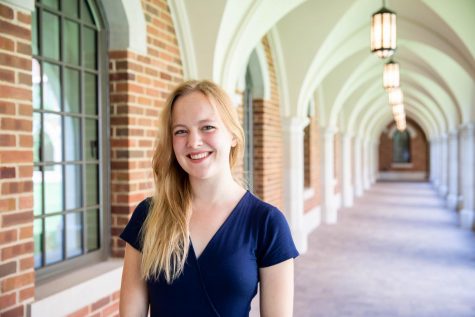Vanderbilt, along with 18 other top universities, filed an amicus brief Nov. 1 supporting plaintiffs who are seeking an injunction against ending the Deferred Action for Childhood Arrivals program. A number of groups filed suits against the rescission of the program, including 15 states, the University of California system and a number of DACA students. The amicus brief signed by Vanderbilt is in support of the suits filed by the University of California Board of Regents, six DACA recipients, the state of California and the city of San Jose.
DACA allows undocumented immigrants who were brought to the United States as children to legally obtain driver’s licenses, enroll in college and find employment. In early September, the Department of Homeland Security released a memorandum announcing the rollback of DACA. Following the announcement, Chancellor Zeppos released a statement condemning the decision, saying that the university would continue to support all students, regardless of immigration status.
“It is incredibly important that these talented young people be able to continue to aspire to be scholars and leaders, and contribute greatly to our nation’s communities,” Chancellor Nicholas S. Zeppos said in a Nov. 2nd statement. “We stand united with our peers to support efforts that would see the program continue. Closing the door to these students is a mistake that will undermine the strength of our universities and the fabric of our nation.”
Vanderbilt is joined in filing by Brown University, California Institute of Technology, Columbia University, Cornell University, Dartmouth College, Duke University, Emory University, Georgetown University, George Washington University, Harvard University, Massachusetts Institute of Technology, Northwestern University, Princeton University, Stanford University, University of Chicago, University of Pennsylvania, Washington University in St. Louis and Yale University.
The brief itself details the ways in which students who receive DACA are making contributions to their universities and to academia at large. It makes the argument that “DACA students enrolled at the amici institutions are some of the most gifted and motivated young people in the world” and that repealing DACA would deprive the United States of the talents that DACA recipients bring.




